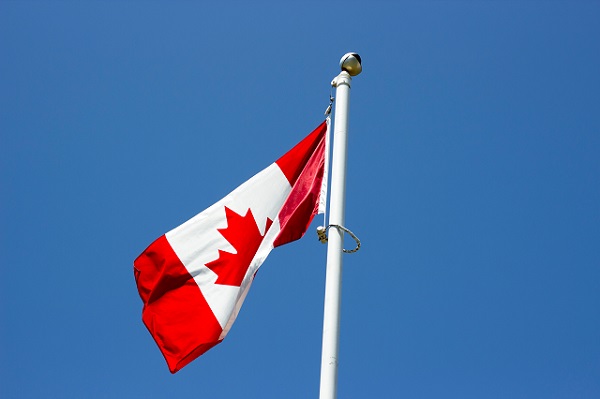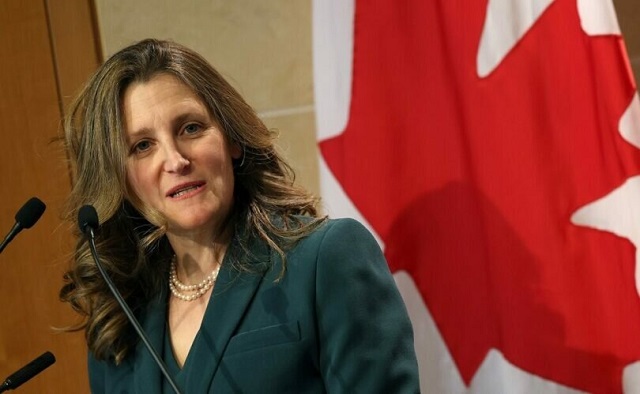Alberta
Alberta relaunch moves into Stage Two on Friday
From the Province of Alberta
Alberta moves to stage two of relaunch
Strong testing data shows active COVID-19 cases in Alberta are lower than expected, meaning stage two of the relaunch strategy can safely begin on June 12, a week sooner than expected.
Albertans can enjoy additional activities in their daily lives while the province continues to open up the economy.
“Albertans have demonstrated the care and common sense needed to move forward with our relaunch earlier than initially planned. Our data tells us our active cases are low, hospitalizations are trending downward and people are taking action to protect those most vulnerable and prevent the spread of the virus. We will continue to move forward together to overcome any tough times ahead, but responsible Albertans should be proud of the vigilance they have shown to date.”
Current data from June 8 show only 355 active cases and 44 people in hospital across Alberta. This is a decrease of almost 70 per cent in active cases since May 14 – when the province began stage one of the Alberta Relaunch Strategy. With its robust approach to testing, Alberta has performed more COVID-19 tests per capita than most other jurisdictions in the world.
As the province enters stage two of relaunch, safety remains the top priority. More businesses, sport and recreation services can open if they are ready. Some larger gatherings for seated audience events will be permitted. In all cases, public health guidance must be followed.
A new interactive map will help Albertans understand the level of risk in their community and learn about any enhanced health measures at the local level, giving additional information on what they need to do to keep themselves and their loved ones safe and protected. Currently, no communities in Alberta need locally targeted enhanced measures.
“More Albertans can now return to work and to the activities so many of us enjoy. However, I encourage you to do it safely. Think of the people in your life who may be at high risk from COVID-19 and protect all those around you as you would want your loved ones protected. Stay home if you are sick. Stay two metres apart and wear a non-medical mask if you can’t. Consider downloading the ABTraceTogether app, and wash your hands often.”
What can open with restrictions
- K-12 schools, for requested diploma exams and summer school, following guidance
- Libraries
- More surgeries
- Wellness services such as massage, acupuncture and reflexology
- Personal services (esthetics, cosmetic skin and body treatments, manicures, pedicures, waxing, facial treatment, artificial tanning)
- Indoor recreation, fitness, and sports, including gyms and arenas
- Movie theatres and theatres
- Community halls
- Team sports
- Pools for leisure swimming
- VLTs in restaurants and bars
- Casinos and bingo halls (but not table games)
- Instrumental concerts
The 50 per cent capacity limit for provincial campgrounds is also being lifted. Over the coming days, the online reservation system will be updated and sites will come online in phases. By July 1, all camping sites will be open for reservations. First-come, first-served sites may open sooner. Information on additional sites will be added to alberta.parks.ca when they become available.
Events and gatherings can be larger in stage two
Maximum 50 people:
- Indoor social gatherings – including wedding and funeral receptions, and birthday parties
Maximum 100 people:
- Outdoor events and indoor seated/audience events – including wedding and funeral ceremonies
No cap on the number of people (with public health measures and physical distancing in place):
- Worship gatherings
- Restaurants, cafés, lounges and bars
- Casinos
- Bingo halls
There is more flexibility for ‘cohort’ groups – small groups of people whose members do not always keep two metres apart:
- A household can increase its close interactions with other households to a maximum of 15 people
- Performers can have a cohort of up to 50 people (cast members or performers)
- Sports teams can play in region-only cohorts of up to 50 players (mini leagues)
- People could be part of a sports/performing and household cohort
Everyone is encouraged to follow public health guidelines and notify others in the cohort(s) if they have symptoms or test positive for COVID-19. If they do test positive or have symptoms, mandatory isolation is required.
Still not approved in stage two
- Social gatherings that exceed above listed maximums
- Regular in-school classes for kindergarten to Grade 12. Classes will resume September 2020
- Vocal concerts (as singing carries a higher risk of transmission)
- Major festivals and concerts, large conferences, trade shows and events (as these are non-seated social events and/or vocal concerts)
- Nightclubs
- Amusement parks
- Hookah lounges (permitted for food and drink only)
- Major sporting events and tournaments
- Non-essential travel outside the province is not recommended. This recommendation will not be lifted until stage three of the relaunch strategy.
The success of stage two will determine when Alberta progresses to stage three. Factors are active cases, health-care system capacity, hospitalization and intensive care unit (ICU) cases, and infection rates. For more information, visit alberta.ca/RelaunchStrategy.
Quick facts
- Relaunch stages include an evaluation and monitoring period to determine if restrictions should be adjusted. Triggers that will inform decisions include active cases, hospitalizations and intensive care unit (ICU) occupancy.
- Active cases, the percentage of positive results and the rate of infection will be monitored to inform proactive responses in localized areas of the province.
- Decisions will be applied at both provincial and local levels, where necessary. While restrictions are gradually eased across the province, an outbreak may mean that they need to be strengthened temporarily in a local area.
- Physical distancing and good hygiene are the most important measures to prevent respiratory illnesses, including COVID-19.
- Clean your hands regularly for at least 20 seconds, avoid touching your face, cough or sneeze into your elbow or sleeve, and dispose of tissues appropriately.
Alberta
Former senior financial advisor charged with embezzling millions from Red Deer area residents

News release from Alberta RCMP
Former senior financial advisor charged for misappropriating nearly $5 million from clients
On April 4, 2024, the RCMP’s Provincial Financial Crime Team charged a Calgary resident for fraud-related offences after embezzling millions of dollars from his clients while serving as a senior financial advisor.
Following a thorough investigation, the accused is alleged to have fraudulently withdrawn funds from client accounts and deposited them into bank accounts he personally controlled. A total of sixteen victims were identified in the Red Deer area and suffered a combined loss of nearly $5 million.
Marc St. Pierre, 52, a resident of Calgary, was arrested and charged with:
- Fraud over $5,000 contrary to section 380(1)(a) of the Criminal Code; and,
- Theft over $5,000 contrary to section 344(a) of the Criminal Code.
St. Pierre is scheduled to appear in Red Deer Provincial Court on May 14, 2024.
“The ability for financial advisors to leverage their position to conduct frauds and investment scams represents a significant risk to the integrity of Alberta’s financial institutions. The investigation serves as an important reminder for all banking clients to regularly check their accounts for any suspicious activity and to report it to their bank’s fraud prevention team.”
- Sgt. John Lamming, Provincial Financial Crime Team
The Provincial Financial Crime Team is a specialized unit that conducts investigations relating to multi-jurisdictional serious fraud, investments scams and corruption.
Alberta
Political parties will be part of municipal elections in Edmonton and Calgary pilot projects

Strengthening Alberta’s local elections
Alberta’s government is introducing legislation to ensure Albertans can rely on transparent, free and fair elections, and municipally-elected officials have clearer accountability measures.
In a democratic society, Albertans expect their local elections to be free and fair, and their elected officials to be held to account by clear rules that govern their local councils. The Municipal Affairs Statutes Amendment Act proposes amendments to the Local Authorities Election Act (LAEA) and the Municipal Government Act (MGA) to add greater transparency to local election processes and ensure local councils and elected officials continue to remain accountable to the citizens who elected them.
“Our government is committed to strengthening Albertans’ trust in their local governments and the democratic process that elects local leaders. The changes we are making increase transparency for Alberta voters and provide surety their votes will be counted accurately. We know how important local democracy is to Albertans, and we will work with local authorities to protect and enhance the integrity of local elections.”
Local Authorities Election Act
Albertans expect free and fair elections and that’s why it’s important we strengthen the rules that govern local elections. To strengthen public trust in local elections, Alberta’s government will eliminate the use of electronic tabulators and other automated voting machines. All Albertans should be able to trust the methods and results of local elections; requiring all ballots to be counted by hand, clarifying rules and streamlining processes for scrutineers will provide voters greater assurance in the integrity of the results.
All eligible Albertans should be able to vote in local elections without impediment. Alberta’s government will limit the barriers for eligible voters to cast a ballot by expanding the use of special ballots. Currently, special ballots can only be requested for very specific reasons, including physical disability, absence from the municipality, or for municipal election workers. By expanding the use of special ballots, the government is encouraging more voter participation.
Amendments in the Municipal Affairs Statutes Amendment Act would increase transparency in local elections by enabling political parties at the local level. Political parties would be enabled in a pilot project for Edmonton and Calgary. The act will not require candidates to join a political party in order to run for a local or municipal office, but will create the opportunity to do so.
In addition, proposed changes to the Local Authorities Election Act would allow municipalities the option to require criminal record checks for local candidates, thus increasing transparency and trust in candidates who may go on to become elected officials.
Municipal Government Act
The role of an elected official is one with tremendous responsibility and expectations. Changes proposed to the Municipal Government Act (MGA) will strengthen the accountability of locally elected officials and councils. These include requiring mandatory orientation training for councillors, allowing elected officials to recuse themselves for real or perceived conflicts of interest without third-party review and requiring a councillor’s seat to become vacant upon disqualification.
If passed, the Municipal Affairs Statutes Amendment Act will also unlock new tools to build affordable and attainable housing across Alberta. Proposed amendments under the MGA would also create more options for municipalities to accelerate housing developments in their communities. Options include:
- Exempting non-profit, subsidized affordable housing from both municipal and education property taxes;
- Requiring municipalities to offer digital participation for public hearings about planning and development, and restricting municipalities from holding extra public hearings that are not already required by legislation; and
- Enabling municipalities to offer multi-year residential property tax exemptions.
Municipal Affairs will engage municipalities and other partners over the coming months to hear perspectives and gather feedback to help develop regulations.
Quick facts
- The LAEA establishes the framework for the conduct of elections in Alberta municipalities, school divisions, irrigation districts and Metis Settlements.
- The MGA establishes the rules governing the conduct of local elected officials once on council, as well as the overall administration and operation of municipal authorities in Alberta, including any policy those authorities may wish to implement.
Related information
-

 Business2 days ago
Business2 days agoDon’t be fooled by high-speed rail
-

 Alberta2 days ago
Alberta2 days agoActivity-Based Hospital Funding in Alberta: Insights from Quebec and Australia
-

 Business2 days ago
Business2 days agoUN plastics plans are unscientific and unrealistic
-

 Business2 days ago
Business2 days agoTaxpayers criticize Trudeau and Ford for Honda deal
-

 Fraser Institute2 days ago
Fraser Institute2 days agoCanadians should decide what to do with their money—not politicians and bureaucrats
-

 Addictions2 days ago
Addictions2 days agoBritish Columbia should allow addicts to possess even more drugs, federal report suggests
-

 Alberta2 days ago
Alberta2 days agoAlberta official reveals ‘almost all’ wildfires in province this year have been started by humans
-

 Alberta2 days ago
Alberta2 days agoPolitical parties will be part of municipal elections in Edmonton and Calgary pilot projects









